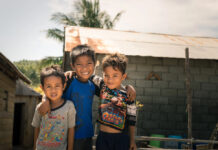This week on MIA Radio, we interview Sam Himelstein, PhD, about the impact of the Coronavirus crisis and “social distancing” policies on adolescents, taking a look at the unique needs of teenagers and young adults and the challenges they may present for parents, caregivers, and other family members.
Sam Himelstein is a youth worker, author, speaker, and licensed psychologist in the state of California. Most of his work has revolved around working with trauma-impacted, juvenile justice-involved, and substance-using youth. He is the founder and director of the Center for Adolescent Studies, a multi-disciplinary training institute teaching youth professionals how to build authentic relationships, practice trauma-informed care, and share mindfulness with young people. He is also the co-founder of Family First Psychotherapy, a clinic in Oakland, California that specializing in working with children, teens, and their families.
Dr. Himelstein is a formerly incarcerated youth and was privileged to change from a path of drugs, violence, crime, and self-destruction to one of healing and transformation. He has written three books, most recently Trauma-Informed Mindfulness With Teens: A Guide for Mental Health Professionals, published by W.W. Norton last year.
We discuss:
- Himelstein’s background and what it means to integrate mindfulness into working with struggling adolescents
- Some of the biggest challenges teens face now that we must all socially isolate at home: “self-isolating” in their rooms away from the rest of the family; excessive screen time; conflicts caused by the strain of close quarters; separation from friends; and mourning milestone rituals.
- How sheltering-in-place tends to amplify existing personal and interpersonal problems because there is no escape valve from the people or situation. Some families, however, are using this time to strengthen their bonds.
- His current work with clients online using tele-health technology
- How adolescents’ need for individuation and self-determination can complicate adhering to safety protocols. There is a healthy “invincibility defense mechanism” that allows them to take risks, but since their brains are still developing, it is harder for them to process that their behavior during the crisis matters.
- Why fact-based lectures don’t work to change behavior, and the need for parents to build trust so teenagers become motivated to act responsibly
- Michael Riera’s work around the transition to adulthood, which focuses on parents switching from a “micromanager” role to a more child-empowering “consultant” role
- How anxiety around the pandemic can cause teens to regress to immature behaviors, and the wide variance among individuals’ “window of tolerance” for toxic stress and uncertainty
- Different ways to use mindfulness by parents vs. adolescents. Parents’ self-care and resilience (or lack thereof) greatly influence how well their children cope. Being “intentional” in relationships can help one manage challenging experiences.
- The definition of mindfulness: Present moment awareness with an attitude of non-reactivity. It is not becoming calm, but a way to center oneself regardless of one’s emotional state.
- Many formal mindfulness exercises exist, but a daily practice can be very simple.
- The many mindfulness resources available for both individuals and families, and how to approach teenagers about starting a mindfulness practice by cultivating an authentic relationship with them
- What non-reactivity is: A non-judgmental attitude toward one’s experience, in which one trains oneself to accept and not be controlled by uncomfortable emotions
- His recent webinars, which will soon be available online: self-care and resilience for helping professionals and an introduction to self-care and resilience for parents and families
- The normalcy of struggling during the pandemic if you are a parent, and the importance of self-care in being the best nurturer you can be















David Healy The Death of Stephen O’Neill
https://www.youtube.com/watch?v=qdljt27WjfU
This is so important everybody especially right now, but need to get the views right up. So if you can pass it around and post it else where it would be good. And yes I know how people feel about DH re ECT.
Report comment